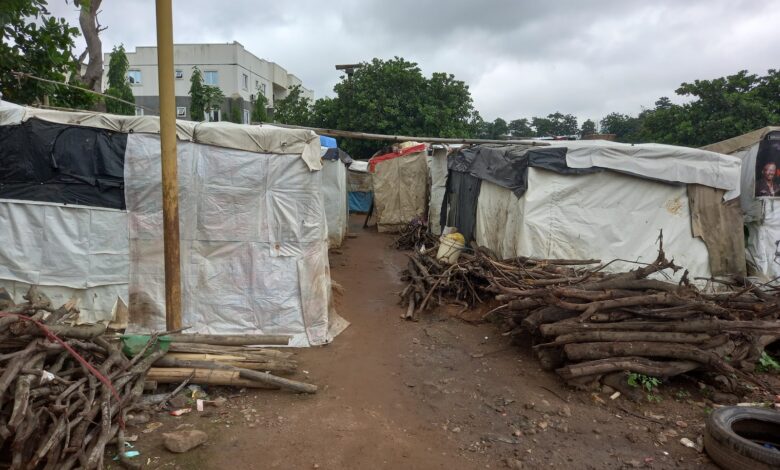Rising Insecurity In The Sahel Needs More Attention — UNHCR
The head of the UN refugee agency says the growing food insecurity adds pressure on the Sahel, which has already faced years of droughts and floods; inequality in wealth, education and access to healthcare; and poor governance.

The United Nations refugee agency (UNHCR) says little attention is paid to the violence in Africa’s Sahel region despite its potential to drive more refugees into Europe.
Filippo Grandi, the UN High Commissioner for Refugees, said crises and conflicts in places like Myanmar, Syria, and Ukraine had driven over 100 million people to leave their homes — both within their own countries and abroad — to seek safety and economic opportunities.
The Sahel, the African semi-arid region separating the Sahara Desert to the north and tropical Savannas to the south, is home to many security threats, including overlapping conflicts, climate crises, and food insecurity.
Countries in the Sahel include Burkina Faso, Cameroon, Chad, Gambia, Guinea, Mauritania, Mali, Niger, Nigeria, and Senegal –some of which were listed as home to the world’s most neglected crises in 2021.

In its latest “Global Trends” report released on Thursday, June 16, the UNHCR found that conflict, climate change, violence, and human rights abuses displaced over 89 million people as of 2021.
The report revealed that the figure is more than double the 42.7 million people who remained forcibly displaced at the end of 2012 and represented a sharp 8 per cent increase of almost 7 million people in just 12 months.
The report noted that while internal displacement in 2021 was markedly higher than in recent years, the number of people crossing international borders seeking protection remained muted compared to pre-pandemic levels, such that health-related border and travel restrictions remained in effect in many locations.
In 2021, some 1.7 million people crossed international borders seeking protection — most African migrants were from the Sahel region.
Driven by extreme poverty, many migrants risk their lives, crossing the Sahara desert and braving the sea on their way to the Canary Islands en route to Europe.
This year, hunger levels have risen in the Sahel exponentially as the world faces growing food insecurity due to the Russia-Ukraine war. Both countries are vital European breadbaskets, and the fighting there has significantly hurt grain exports.
The African Union, whose continent relies on imports of wheat and other food from Ukraine, has called for help to access grain blocked in Ukrainian silos and unable to leave Ukrainian ports amid a Russian naval blockade in the Black Sea.
In Abuja, Nigeria’s Capital, hunger pangs are sobering, especially for children in downtown communities.
“We don’t have anything to eat,” 13-year-old Fatima Adamu, whose father, a displaced herder, found it difficult to make enough profit from his cattle business, told HumAngle.

Humanitarian gap
Grandi said the growing food insecurity and conflict have added to the pressures the Sahel has been facing, including years of droughts and floods; inequality in wealth, education and access to healthcare; and poor governance.
“People are still suffering — they do not have food, do not have water, do not have shelter and have to flee,” Grandi said.
“I’m anxious about the Sahel. And I don’t think that we talk enough about this region that is, by the way, so close to Europe. And I think Europe should be much more worried.”
Grandi also criticised what he called a “monopoly” of resources given to Ukraine, whereas other programmes to help the displaced were underfunded.
He noted that the global attention on Ukraine strains other crises with aid funding being diverted to the European country.
“Ukraine should not make us forget other crises,” he said, mentioning a two-year-old conflict in Ethiopia, a drought in the Horn of Africa and extreme insurgencies in the Sahel.
The European Union’s response to refugee crises has been “unequal,” Grandi added.
He compared the bickering between states over taking in small groups of migrants crossing the Mediterranean by boat with EU countries’ generosity with Ukrainian refugees since Russia’s invasion in February.
“Certainly, it proves an important point: responding to refugee influxes, to the arrival of desperate people on the shores or borders of rich countries is not unmanageable,” he said.
The head of the UN refugee agency called for more efforts to build peace worldwide.
Meanwhile, the AU’s Peace and Security Council recently underlined the imperative of continental collaboration and an action-oriented approach to strengthening the resilience of vulnerable populations affected by conflicts and humanitarian crises.
Support Our Journalism
There are millions of ordinary people affected by conflict in Africa whose stories are missing in the mainstream media. HumAngle is determined to tell those challenging and under-reported stories, hoping that the people impacted by these conflicts will find the safety and security they deserve.
To ensure that we continue to provide public service coverage, we have a small favour to ask you. We want you to be part of our journalistic endeavour by contributing a token to us.
Your donation will further promote a robust, free, and independent media.
Donate HereStay Closer To The Stories That Matter




